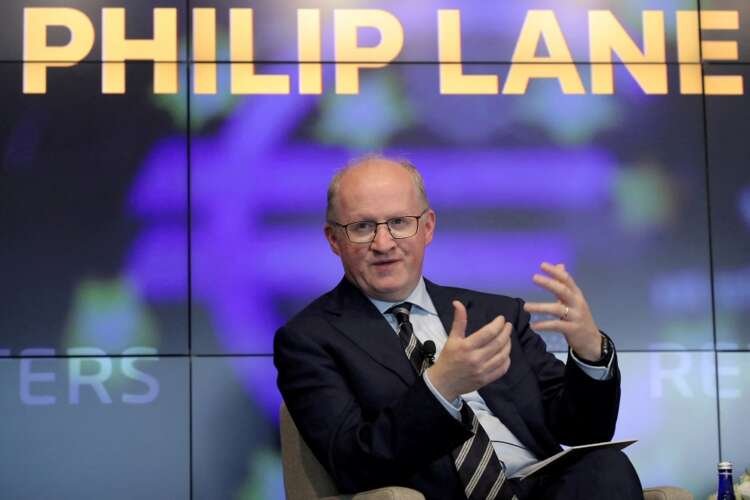ECB’s Lane says rate hikes may hit harder than bond unwind
Published by Jessica Weisman-Pitts
Posted on October 11, 2022
2 min readLast updated: February 3, 2026

Published by Jessica Weisman-Pitts
Posted on October 11, 2022
2 min readLast updated: February 3, 2026

FRANKFURT (Reuters) – The European Central Bank may have a bigger impact on markets by raising interest rates than by whittling down its massive pile of bonds, the ECB’s chief economist Philip Lane said on Tuesday, giving his first hint about a nascent policy debate.
FRANKFURT (Reuters) – The European Central Bank may have a bigger impact on markets by raising interest rates than by whittling down its massive pile of bonds, the ECB’s chief economist Philip Lane said on Tuesday, giving his first hint about a nascent policy debate.
Fighting record-high inflation, the ECB increased rates at its last two meetings, promised more hikes in the coming months and began a discussion about shrinking its balance sheet.
This would likely be done by not replacing some of the five trillion euros ($4.85 trillion) worth of bonds that the ECB has bought over the past decade when they mature, in order to mop up cash from the banking system and drive up borrowing costs.
But Lane said any such move was likely to have a smaller impact than when those purchases were announced as the key plank of the ECB’s strategy to raise inflation that was then too low.
“A tentative conclusion about the impact of balance sheet actions on financial conditions in a normalisation phase is that the signalling channel will be weaker for a given adjustment to the size and composition of our balance sheet,” Lane said.
By contrast, he said that rate hikes would have a greater effect as markets readjust to a world when borrowing costs are no longer ultra-low or volatility suppressed.
“The signalling effects emanating from a given rate adjustment may well be larger than it is estimated to have been the case prior to the financial crisis.”
The ECB raised its deposit rate from -0.50% to 0.75% in less than two months and markets expect it to continue increasing them for the better part of next year – following in the footsteps of the U.S. Federal Reserve.
The raft of rate hikes all around the world has roiled financial markets, causing trouble to some poorer countries and even to some pension funds and a bank in richer economies.
Lane said the ECB would watch closely “the risk of snap-back in term premia and the sudden repricing of rate expectations…from a market functioning and broader financial stability perspective.”
($1 = 1.0303 euros)
(Reporting By Francesco Canepa, Editing by William Maclean)
The European Central Bank (ECB) is the central bank for the eurozone, responsible for monetary policy, maintaining price stability, and overseeing the banking system within its member countries.
Interest rates represent the cost of borrowing money or the return on savings, typically expressed as a percentage of the principal amount over a specific period.
Inflation is the rate at which the general level of prices for goods and services rises, eroding purchasing power, and is often measured by the Consumer Price Index (CPI).
Explore more articles in the Top Stories category











